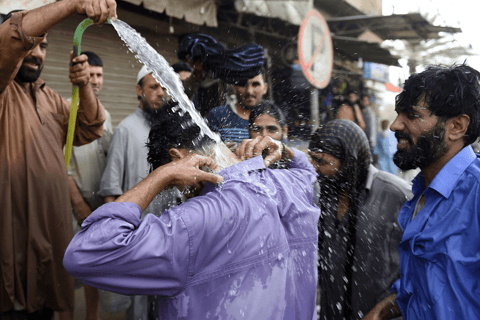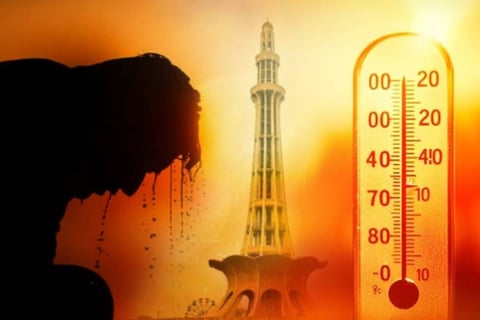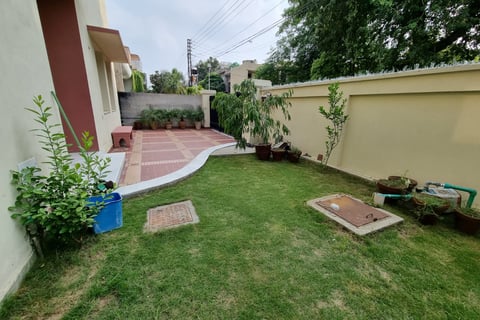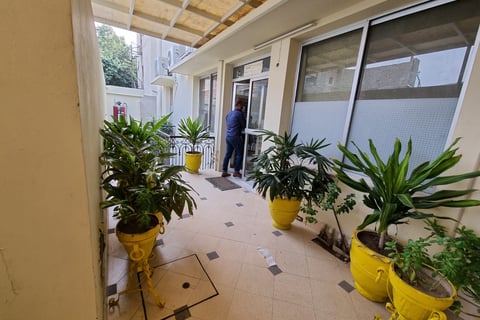What’s Causing the Extreme Heat Waves in Pakistan?
The increasing frequency of heat waves and rising temperatures across Pakistan in 2025 demand serious attention. Before we discuss how to stay protected, it’s crucial to understand the root causes of these extreme weather conditions and the key factors behind them
Team: Faisal Hospital
5/3/20253 min read


Introduction: Rising Temperatures, Rising Concern
Heat waves across Pakistan have become increasingly frequent, intense, and dangerous—especially in 2025. Record-breaking temperatures are affecting both major urban centers and rural communities alike. This growing environmental crisis demands not just awareness, but a deeper understanding of its causes and immediate, community-wide action. In this blog, we’ll explore what’s driving these extreme weather events and how we can respond effectively.
1. Climate Change: A Global Crisis with Local Consequences
Human-induced climate change is the primary driver of rising global temperatures and extreme heat waves. In Pakistan, greenhouse gas emissions from industry, transportation, agriculture, and energy production continue to rise, accelerating the warming process.
These emissions form a thick thermal blanket in the atmosphere, trapping heat and altering weather patterns. The effects are visible in prolonged summers, increased frequency of heatwaves, unpredictable rainfall, and intense dry spells. What were once considered rare events are now becoming the norm, threatening livelihoods, agriculture, and health.
2. Urban Heat Islands: When Cities Trap the Heat
Major cities such as Lahore, Karachi, and Islamabad often record significantly higher temperatures than their surrounding rural areas. This phenomenon, known as the “urban heat island” effect, results from the concentration of heat-absorbing surfaces like asphalt, concrete, and glass.
These surfaces retain heat throughout the day and release it slowly at night, preventing natural cooling. Limited green spaces, overpopulation, and poor urban planning worsen the situation. Urban heat islands contribute to higher energy use, exacerbate air pollution, and pose serious health risks to residents.
3. Deforestation: Losing Nature’s Cooling Power
Trees play a vital role in regulating local climates by providing shade and releasing moisture into the air through a process called transpiration. Sadly, Pakistan faces severe deforestation driven by urban development, agriculture expansion, and illegal logging.
As green belts disappear, exposed soil and built surfaces absorb more heat, driving up land temperatures. This environmental degradation not only increases the intensity of heatwaves but also diminishes biodiversity and exacerbates the water crisis. Reforestation and community-led tree planting campaigns are crucial to restoring ecological balance.
4. Heat Domes: Trapped Under a Lid of Hot Air
Climate change doesn’t just raise overall temperatures—it also disrupts natural weather cycles. One particularly dangerous result is the formation of “heat domes,” which are high-pressure systems that trap hot air over a specific region for extended periods.
In Pakistan, such phenomena have led to consecutive days of scorching temperatures, often with little to no cloud cover or wind. These conditions can cause severe dehydration, heat exhaustion, and even fatalities—especially among vulnerable populations like children, the elderly, and outdoor workers.
Responding to the Crisis: What Can We Do?
Understanding the root causes is only the beginning. Building resilience requires proactive efforts at both community and policy levels. Preventive measures, public education, and sustainable development must all work together.
At Faisal Hospital, we advocate for climate-sensitive healthcare and encourage every citizen to take the following steps:
Stay hydrated and avoid prolonged exposure to direct sunlight.
Wear loose, light-colored clothing made from breathable materials.
Use fans, shades, and cooling appliances responsibly.
Participate in local tree-planting efforts.
Support policies and organizations that prioritize clean energy and sustainable living.


Stay Safe with Faisal Hospital
Your health and safety are our top priorities. For heat-related concerns, emergency care, or preventive consultations, visit Faisal Hospital Lahore or contact our 24/7 helpline. Our medical professionals are ready to support you through extreme weather conditions and beyond.
Together, we can build a more climate-resilient and health-conscious Pakistan.
#HeatWave2025 #ClimateAwareness #FaisalHospitalCares #StayCoolPakistan #BeatTheHeat #SustainablePakistan




